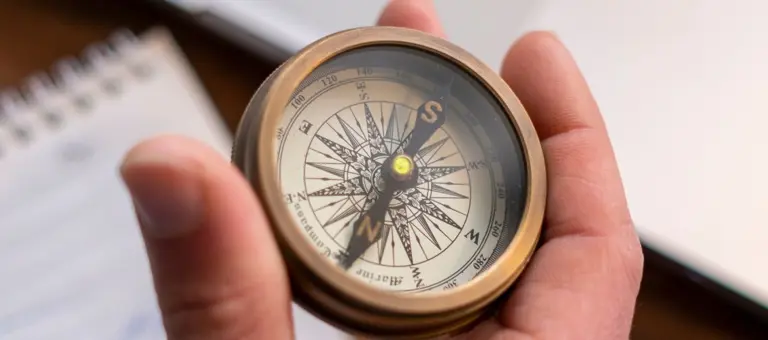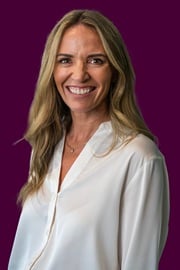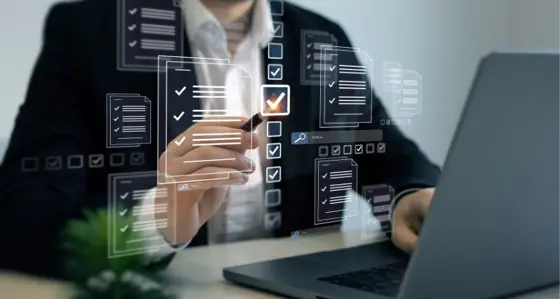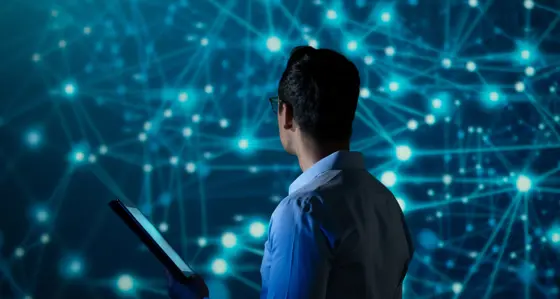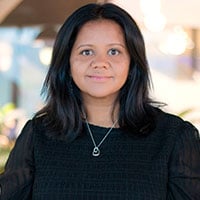Mansi Welcome to The Rise of the COO, the podcast from Baringa's COO Network, where we bring together chief operating officers to share their stories and perspectives on one of the most complex leadership roles in business. I'm Mansi Patel, Capability Sector Leader and COO network sponsor at Baringa. In today's episode, we're talking about what I like to call the COOs compass. As COOs set direction, prioritize what really matters. And balance the visible with the invisible work that keeps organizations moving forward. I'm thrilled to be joined by Kayte O'Neill, COO at NESO. Kayte, it's a real pleasure to have you with us.
Kayte Thanks very much, Mansi. I really appreciate the invite to join you today.
Mansi Now Kayte, you've had a fascinating career journey leading to your role as COO at NESO. Can you start by telling us a little bit about NESO?
Kayte Yeah, thank you. So NESO is the National Energy System Operator. We're a relatively new organization. We're just approaching our first birthday. And we have what I think is a really interesting remit. We do everything from keeping the lights on 24/7, 365, so second by second making sure that we're balancing the electricity system and keeping the lights on for customers. But we also at the other end of the spectrum are accountable for planning the energy system all the way out to 2050 and we don't just do that for electricity now, we're accountable for thinking about the role of gas, the role of hydrogen and we're also really expanding our role not just to be a very sort of nationally focused organization but to work much more with communities and regions. Trying to ensure that the energy transition really brings together our national needs as GB, but local and regional needs of the communities and customers that we serve. Another important facet of our role, really very new to us, but has proven to be critical in the first 12 months of our being, is that we advise government both on very long-term energy transition, so what it will take to deliver a really optimal energy transition for GB, but also advising them on the security and resilience of the energy system along the way. And that's featured very heavily in our first year as NESO.
Mansi And it'd be wonderful to hear a little bit, Kayte, about your journey to COO in NESO. Perhaps you can share that with the audience.
Kayte Yeah, thank you. So I actually have been in the energy industry for over 20 years now. I can't quite believe I'm saying that, but it is true. The majority of my 20 years was spent in National Grid, where I had the privilege of really working in roles right across the group. You know, I've worked in electricity and gas, I have worked in transmission and distribution, I've worked in the UK and was really lucky to have some time out in the US. And then most recently, I came back to the electricity system operator, just as we were thinking about what it would take to spin the electricity operator out of National grid. And to establish what we now know to be NESO, the National Energy System Operator. I've been in the COO role for about 18 months, and we can go on and talk a little bit more about that. But just before becoming the COO, I was very privileged, actually, to have the role of envisaging what a National Energy System Operators could be, what we could be what we could do. What we would care about, what our mandate would be, what we could contribute to the energy system, and then to also run the sort of the operational process of extracting the entity out from National Grid and standing it up as a new organization. And I learned so much in that role. It was truly fascinating. But when I got to the end of working with the team to create the vision for NESO, get it established, it was at that point that the board and the executive team said to me, well, maybe you can come along and take the COO role and essentially live with what you created, which is always fun.
Mansi Well, I love that you've had one of those dream moments that people want in their careers about being able to really design something that you think is right, but then also the opportunity to see it through. So that is an incredible remit. I mean, it'd be useful to just perhaps share with this audience what you feel is most unique about the reel that you now hold as COO in this role.
Kayte Yeah, so I've spent some time over the last 12 months trying to understand how my COO role sort of compares with other COO roles out there. Mine certainly is really interesting in that a huge part of what we do is very real time. It's very much the here and now, keeping the lights on the second, the next second and the second after. But at the same time, thinking very, very strategically about, you know, what is this energy transition going to look like for GB, for society, for economy, for consumers? And thinking about that through the broadest possible context of what are all of the big challenges, what are all of big opportunities, where are the really difficult trade-offs that we're going to have to make as we think about that energy transition and then sort of advising government and informing some of the really big strategic decisions that will chart us on that path, if you like, out to 2050. That sort of swing from real-time operations, to very, very long-term strategic, I think is somewhat unique, not completely unique, but certainly very, very interesting. The other aspect, and maybe we'll come on to talk a bit more about this, is just the very, very diverse stakeholder base that we deal with, everyone from government and the regulator to really big sort of traditional energy sector market participants through to you know very very different stakeholders today: regions, communities, consumers and brand new sort of innovative participants in the energy system so I really enjoyed that aspect of of the role as well. Another part of my role, of course, and one that really adds to the sort of the interest and the variety of the things that I spend my time focus on is that broader sort of executive leadership role. I sit as part of a fantastic wider exec team leading NESO, and I've also been very privileged to be on the board of the system operator business since 2019. And I find that really interesting because it helps always pull me back to our operational delivery is in service of something bigger and working alongside a team of colleagues on the exec who are thinking all the time about NESO's broader strategy, thinking about the culture of the organization, thinking about the talent that we're growing. Thinking about where we are today and where we need to be in five and ten years time. More importantly now than ever for us thinking about our brand and reputation, our credibility as we take on this sort of new leading role in the energy space. That is a really helpful perspective sitting alongside of my very detailed operational accountability. That's something I really enjoy about operating at this level.
Mansi What a wonderful story. And can I share how lovely it is to hear someone who's spent time at length in an organization as well. It seems to be less and less the case these days, but I think how you really get steeped into what that organization was, its heritage as well as its future stands you in such good stead for the role that you're in today as well and what a fascinating role it is that you've described your competing stakeholders, your competing priorities in both the short-term things that need to be delivered to consumers in the market and the long-term thinking that's much more strategic around the energy system over the next 50 years. Now, Kayte, you've shared with me previously that you've ended up in this role, but you are not an engineer by background. Tell me a little bit about what that feels like in your current organization, where most people you are surrounded by are engineers.
Kayte Yeah, it's an interesting space to find myself in. Having been a non-engineer in a very engineering world for the last 20 years or so, you figure out pretty quickly, I think, what you bring to the table, why the perspective that you bring is really valuable and why having that really diverse mix of perspectives is not just important, it is actually really critical to the ability to think and operate these businesses. My background, as I say, is I'm an economics graduate, but I've done a lot of strategy work, a lot regulation, sort of regulatory work, and I have this thread, this theme of sort of customer experience running through my career. I think the reality of all of that is that it helps me to not think about all of the challenges and opportunities that we face purely through an engineering perspective, but to think about them through the perspective of what ultimately are the outcomes that we're seeking to achieve here for consumers. And without a shadow of a doubt, there'll be engineering considerations to almost everything that we do. But it's by no means just the engineering considerations. And I think that really varied background that I have, helps me to bring a much broader perspective to the table. It's not always easy. And I've had to sort of almost build my own level of confidence and comfort in not being an engineer, but still having that really valid voice at the table, but certainly being in an organization that values all of those really different perspectives has helped massively.
Mansi Well, that's lovely to hear. And let me reassure you with the COOs that you know are in our network. So many of them are being asked to bring both a really strong operational background, but also such a strategic mindset, the problems that most organizations are facing today as well. Now I know in your role, there are many competing stakeholders and many competing priorities. This particular discussion point is around the compass of the COO. I'd love to just allow the audience to have a little bit of an insight around how do you think about your different audiences, particularly given everybody is so engaged around the energy sector, whether you're a consumer or a regulator, you know, this really matters to everyone in the world today. So, tell us a bit about your stakeholders and how you think about, I guess, ruthless prioritization.
Kayte Yeah, the stakeholder landscape is changing dramatically. I think that's probably true in many sectors, many organizations. Certainly, for us at NESO, it's true. I try to start always and first by thinking about consumers ultimately as our most important stakeholder. And that can be through the lens of society as a whole, the GB economy, communities that we're operating in or consumers at home and consuming their own energy, participating in the energy transition that way. But I do try to always start with retaining that focus on consumers through those lenses. But of course, navigating this really complex, really difficult energy transition has loads of other stakeholder perspectives to take into account. And if I go to the other end of the spectrum, much of what we're doing in the energy space today is really stepping back and reflecting on what will it take to make our way through this transition and what are the policies? Where does government really need to lead the way? How do they set a policy environment that's really clear on what we are striving to achieve from an energy transition in GB, and how do you translate that policy direction into a set of markets and signals for people who are going to come along and participate in that transition to want to come and invest in Britain, to want to come be a part of this transition, to want to come and help us unlock those opportunities for consumers. From a stakeholder perspective. You know, that's two very different lenses that we have to take into account. And then sort of running between that policy at one end of the spectrum and ultimately how it translates for consumers at the other end of the spectrum is this continual sort of iterative conversation that we're having with the businesses that are participating in energy markets and that's everyone from the generators who are building the assets or the storage companies that are building their batteries to help us provide the energy into the system to the network companies that own the infrastructure that's moving the energy around the system through to some really innovative you know new players into the market that are helping us leverage the best of technology and data and innovation to make the energy system as efficient and effective as it can be. I used to say we had, when I joined the industry, a relatively small number of very, very large stakeholders, so a small number very large generating companies, a small number of large network companies, and a small number of very large energy suppliers supplying energy into people's homes. That couldn't be more different today. Literally, there are thousands of entities out there who are part of this transition and really trying to listen and understand their perspectives is really critical to helping shape the direction we go in as we go on this huge transition journey that we're on.
Mansi And with that changing landscape, how do you stay across it all, Kayte?
Kayte I think it's, first and foremost, it's recognizing that that is a hugely important part of the role. So, you asked about ruthless prioritization. Actually, prioritizing those stakeholder relationships for me is critically important. And then recognizing that the traditional voices aren't always the only relevant voices in the conversation. So actively seeking out stakeholders who haven't necessarily been around for a really long time. We don't necessarily have the biggest teams and the loudest voices, but certainly I've got something really important to say about the future, you know, as we look ahead on the energy transition. I think that's been important. And then the other bit I'll just say is it's, it's not just about GB. Actually, although GB is in many respects, world leading in terms of the progress we're making as through the energy transition, there's a lot that we can learn from global stakeholders, peers in other countries, and we have to remember to prioritize them as well, continually be listening to what's going on elsewhere and being genuinely and really open to learning from that.
Mansi Kayte, as you were describing that, it was quite striking for me, thinking about how most organizations I speak to are caught up in a cycle of what do we do tomorrow. What do we next year? And some of what you're trying to grapple with is what do you do tomorrow and what do we in 20 years' time that needs some thinking and thought now? Tell me how you decide what really matters in that moment. You've obviously got the strategic mind to balance it all but what helps you get to the right decision in those moments?
Kayte Yeah, for me, it's been really clear on sort of what are the core anchors, if you like, that will always pull you back and help you sort of navigate those big decisions or those big opportunities. For NESO, some of our anchors are set for us, if I can put it that way. When we were created, we were given a very clear mandate by government to think across what we sometimes refer to as the energy trilemma. So how do we ensure that we have an energy system that's really secure, a system that is affordable, and an energy system that's sustainable and maybe thinks about sort of our transition as GB towards a net zero energy future? And those anchors require us, I guess, to prioritize equally across those three things to not get caught up in any one of them too definitively, to always have all three of them in mind. That's really important for sort of framing the question, if you like. That's the context of the question that we're, the context in which we're answering the questions, whatever it may be. But I also try to think about what specifically does NESO bring in this moment? And again, here, I try to hang on to what's unique or what's really important about NESO. It is really important that we are a credible expert. If we have this role, as you say, to operate the system in real time and to plan the system for 2050 and to advise government on the big decisions they should make, then it's critically important that we've got the expertise in the organization but that we're recognized for that sort of credibility. And then it's also really important because of our role looking across the three aspects of the trilemma, as I described, and helping explore and pull out some of the big trade-offs, we also need to be really impartial as an organization. So it's a bit of a long-winded way of answering your question, Mansi. But for me, when I'm thinking about the compass, when I'm thinking about where do I prioritize, where do we focus, I start by saying what's the context we're operating in, like what are the corners of the envelope that we have to think about what is NESO's particular strength here, what's the unique thing we bring. Then use that to help us guide kind of where we focus at any given moment in time. I have a bit of a strategy for trying to ensure that we never get caught out and we're trying to sort of impulse prioritize in the moment. What we try to do really as an organization, but especially as my team and breadth of the sort of operational accountabilities we have. We keep a running list of from a team perspective, from a full sort of COO remit perspective, what are our team priorities, and of course they won't cover everybody's priorities, they won't cover everybody's area of work. In fact, some teams might not have anything on the priority list, the big priority list for the team. But we have shared goals around them and we judge our performance on our shared success in delivering against them. Because we have that clarity on what's important to us as a team. It means that, you know, when the crisis happens or when the change of direction happens or when urgency means that you need to deliver something faster or in a more challenging context than you otherwise might have. We're not debating as a team what's important to us. It is crystal clear to all of us where we are going to focus our collective efforts and that we're all going to get behind delivering on those very specific priorities.
Mansi Sounds like you've established what I would describe as a unified high-performing team that can move as the market moves with the direction required. What did it take to set that up?
Kayte Well, I had the real privilege, maybe something of a rare privilege, of building the team out from scratch actually. When we became NESO and we took on all of these new responsibilities and we established the operating model for the business, we were able to say, what do we think we need around the table in order to be able to have that very high performing team that you described. If we go back to my own story, I'm a big fan of having a real mix of experiences, backgrounds and perspectives around the table. We have some real long-standing deep engineering capability around the table. We have folks who've been in National Grid or its predecessor companies for a really long time, but we've also got folks who've come from all over the industry and outside the industry. I also really like to have a mix of people around the table in terms of where they are on their own career journey, so some really established sort of long-standing executive level leaders. But equally, you know, lots of folks who are much earlier in their own sort of development journey, maybe new to executive level leadership, but really, really excited to sort of grab hold of the challenges. So privilege of forming the team, picking what we thought we needed and getting all of the right folks around the table. And then I have to say, you know, we spend a lot of time investing in our effectiveness as a team and we give that as much priority.
Mansi What does that mean?
Kayte Well, it means we work with a partner organization who's sort of model for team effectiveness we really buy into. You know, we really value their lens on what does it take to be a high-performing team. And we didn't just do this one-off, half-day team-building exercise. We said for us, this is a 24-month journey. New team, new organization, it's going to take us some time to get there. So, we committed right up front to say this was something we were going to value. And work hard on and we come back every quarter, spend a couple of days together as a team, not focused on the content of the work, but focused on our effectiveness and our sort of collective contribution to the organization.
Mansi I really love how you've taken that on a two-year journey to really cement and build that high-performing team. So many of the COOs I engage with and speak to couldn't speak more highly of the need of the team around them, so you having the opportunity to set that up from the outset is incredible. To hand pick and hand coach, I guess, each of those people into the team as well. Now, there is a lot going on. How do you balance all of this? Tackling your agenda that is definitely not a short-term agenda, but you must also have your own life. Things that happen outside of work. Tell us a little bit about how you balance these priorities both at home and at work.
Kayte I have a wonderful life, I have to say, really lucky to have a gorgeous family.
Mansi Very pleased to hear that.
Kayte Yeah, thank you. I need to remember that. We all have to keep that in mind. So I have three fabulous children and a really big extended family around me and I guess they're a huge part of One, enabling me to do the job that I do. They're really supportive, they're really encouraging, and we've built our family life and our ways of living as a family in a way that enables me to do my job. And they're my biggest cheerleaders, which is really important. They are also, of course, the anchor that sort of pulls me back and reminds me that sometimes work is the priority and most often family is the priority. Within work itself, it isn't easy. I, you know, I have to say that these are big roles, many, many of the COOs that I've come across and one of the reasons I was so excited about joining the network that you've created. Many COOs are operating portfolios that are as broad and deep, if not broader and deeper than mine that require them to think in very different contexts, mine being the very, very short term, second to second, keeping the lights on to the very long term, where we're going to be in 2030. It isn't easy to prioritize against that. The things I tried to hold true to is what are the things that only I can do? So I've built a phenomenal team. I trust them. I really trust them and they are more than willing and capable to sort of take on the breadth of their own roles. So what are things that I can only do and how do we ensure that they get the appropriate focus? But also I am instinctively a people leader first and foremost and I rely on my instinct of being able to sort of look across the team, look across the issues that we're dealing with as a team and sort of identify where do I need to lean in, where do i need to focus, where can I provide support and really importantly why can I get out and get out from under their feet and not get in the way.
Mansi Such an important thing to hold onto and remember, I couldn't agree more. Now, Kayte, it does sound from what you've described as though one of your compasses is your family, which is lovely to hear as well. They seem to really anchor you in what must be a really busy job. As we wrap up, it would be wonderful to hear just one piece of advice that you might give to a fellow COO who's listening to this, or anyone who's listen to this on setting direction and staying effective. What would your advice be?
Kayte I think my one piece of advice would be remember the importance of context. As the COO, I think primarily our job is to sort of look up and out at the world around us to use that context, that understanding of the context to help connect the dots. Then bring that back into the organization and use that to really drive where we focus, how we deliver, really, really kind of hone in on what's important. But we are fairly uniquely positioned to provide that context and I hold onto that responsibility really dearly.
Mansi Wonderful. Kayte, thank you so much for joining us.
Kayte Mansi, thank you so much for having me. It's been a real pleasure and I'm really looking forward to continue to work with you and the network.
Mansi Great, thanks Kayte, it's been an absolute pleasure hearing about your personal journey to this role especially given you're not an engineer by background and what you bring into it. It's also been fascinating to hear your insights on the complexity of the energy system that we operate in, the different competing demands within it which are both near-term and long-term and how you navigate that with what I hear as the North Star that you set for the team around the continual focus on purpose, understanding what that team is there to do in that moment, as well as in the next moment and the moments ahead. To our listeners, I would say thanks for tuning in. And if you enjoyed this episode, check out the others in the series and let us know what topics you'd like us to cover next. We'll see you next time on The Rise of the COO.
